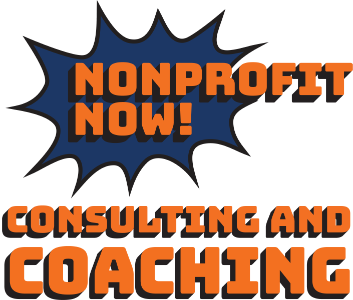|
If this “Great Resignation” idea is true, that means a couple of things. First, there should be lots of job openings out there for fundraisers (as well as everyone else!). One thing that has been documented for years is the level of rapid turnover rate for fundraisers. My hunch is that this is because when we’re in this process, we tend to hear what we want to hear i.e. our entire organization is committed to fundraising, our board is really engaged in development and on it goes. So, for those of you that are out there, I thought I’d do my part in hopefully helping you develop a better radar for what you DON’T want to hear. Here are my top 5:
1. You’ll be doing the fundraising. We don’t get involved in that sort of thing. That’s why we’re hiring YOU! Oh no you’re not! This is #1 for a reason. This is a clear indication that this organization views fundraising from the good old rainmaker perspective. We’re going to go out and find us a Rockstar, Lone Wolf, Hero (fill in the blank for the one man or woman fundraising show). Fundraising is always a team sport so look for organizations where all staff members view fundraising as vital to the sustainability of their work and mission. 2. We don’t have any money to pay a fundraiser so we’re hoping you’ll work on a commission basis. No thank you. Let’s start with the fact that this is against Association of Fundraising Professionals (AFP) Ethics and Standards. There’s a good reason for this beyond the idea that working to ensure you’re actually paid something is a bad idea. It puts you, the fundraiser, in a conflicted position where you may be forced to do almost anything to bring in donations. This is also an indication that this organization lacks a gift acceptance policy - they’ll probably accept a gift from any source if that’s their only means of compensation. How to avoid this: Confirm there’s an actual salary. Nothing wrong with a salary and performance bonus but take a hard pass on commission deals. These days, most ads on Indeed and idealist indicate the compensation structure but if they don’t, ask before proceeding further. 3. We’re spending our last dollar to hire you and we’re hoping it will work out: Yikes... This is just a slight step up from #2. If this is the conversation, you may be talking to an organization that hasn’t given too much thought to their future and may be a fast-sinking ship. Congrats! You’re getting hired to see if anyone out there - individuals or institutions - would like to throw you a life preserver. I’ll never forget when the Executive Director of a nonprofit I was consulting for told me to start each proposal by noting we were in an emergency situation and they could fast track our proposal before we had to close our doors. Not exactly an inspiring message. The alternative here again parallels #2: Look for work opportunities where the fundraiser is being brought on BEFORE they need the funding and/or their capacity has grown. 4. What’s your Rolodex look like? Do you know some big donors you can bring over? Rolo-what? Beyond the reality that the last Rolodex might have been sold in 1996 - just a bit before the first version of the Palm Pilot came out - this should send you running for the hills. Donors aren’t customers that follow a professional around from company to company. Let’s get it straight: While it’s true that people give to people, those people are connected to an organization due to the impact of the work - not the fundraiser who may have done a wonderful job creating the culture of philanthropy that makes it an engaging and enjoyable process. Find opportunities with nonprofits that value the process of celebrating existing donors and finding new ones through engagement, cultivation and ultimately creating commitment. 5. We’re really hoping our board will start to step up...Me too! If I had a dime for every variation of this, I’d make some pretty hefty donations to my favorite nonprofits. This can take the form of “our board really isn’t a fundraising board”, “our board is in transition” and another favorite “ well, they give a lot of time but not money.” A conversation I have at least three times a week is helping nonprofit leaders realize that having a board that provides the leadership required is an ongoing process that takes courage and clarity mixed with patience and persistence. There are enough great books on board leadership so I’m not going to take space to describe what that looks like. What I will suggest is to ask the hard questions up front: Did you have 100% participation in board giving; Can you provide examples of board engagement in fundraising. Develop a list of questions to ask that gives you the comfort you need to know that the board leadership needed for your success is in place. If you’re a fundraiser and you’re reading this, I have no doubt you could add to the list and may even have your own. Feel free to share more in the comments as it can only serve to help others as they explore.
1 Comment
Valerie Finley
11/20/2021 01:20:08 pm
Thanks Robert, I am going into a new development interview in the next few weeks and this is very helpful information to watch for.
Reply
Leave a Reply. |
AuthorRobert Grabel is the President of Nonprofit Now! You can find his posts here and at www.robertgrabel.com Archives
August 2022
Categories |


 RSS Feed
RSS Feed
